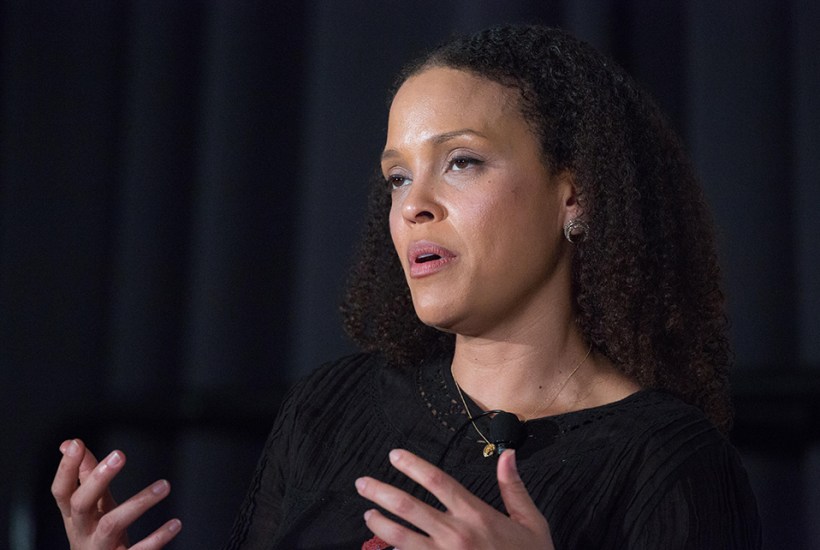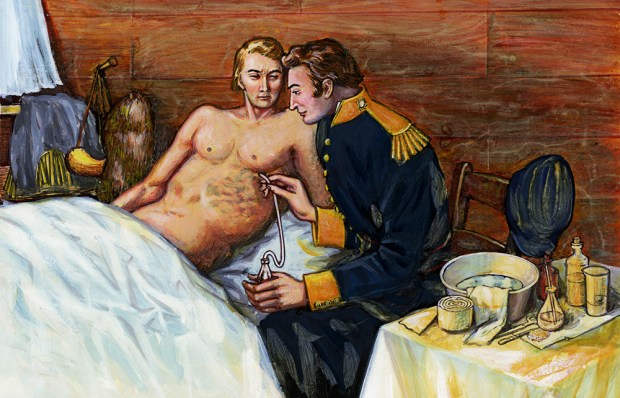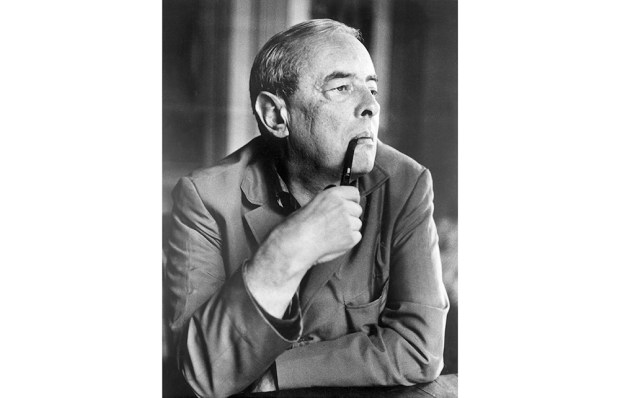Jesmyn Ward, America’s only female two-time National Book Award winner, has had more than her share of hellish experiences to fuel her literary life. Her Mississippi-based family endured Hurricane Katrina. Salvage the Bones (2011), set during the catastrophe, was Ward’s response. Her memoir, Men We Reaped (2013), tackled her grief at losing five men close to her, including her brother, who was killed, aged 19, by a drunk driver. In January 2020, Ward’s husband died of acute respiratory distress syndrome.
Hell is very much the context for her fourth novel, Let Us Descend. In it, Ward recreates the hell of the antebellum South for the ‘stolen’ people forced into chattel slavery, fleshing out their lives through the story of Annis, her teenage protagonist, whose plantation-owning ‘sire’ raped her enslaved mother.
The title is from a line in Dante’s Inferno, snatches of which Annis overhears outside a closed schoolroom door. She listens as a tutor tells her two half-sisters about an ancient Italian. ‘The hell he travels has levels like my father’s house… but instead of the Italian poet descending into hell, I see my mother toiling in the hell of this house,’ she later recalls.
Annis eavesdrops to claim something for herself: everything else, from her mother to the temporary comfort of a lover, Safi, a fellow slave girl, gets wrenched away. Her mother and then Annis herself get sold to ‘the Georgia Man’, who chains the men and ropes the women he buys, marching them down from the Carolinas to New Orleans to be stolen all over again by a different plantation owner.
Ward’s specificity about the horrors of that journey – the beatings, the rapes, the near drownings, the actual drownings – is brutal. But there is also beauty: she has a poet’s ear and her repetition of phrases and conjunctions is hypnotic. Of the cane harvest, she writes:
We don’t sleep. We crawl through the fields. We gather the sweet sheaves. We crush them. We burn the nectar. We collect the sugar… I shrink: the work wrings me to ropes. The walking, lifting, throwing, washing, clearing and trudging par my face. I am less. We are all less.
Just as Toni Morrison and Colson Whitehead used black spiritual traditions in their writing, so does Ward, who first played with magic realism in her previous novel, Sing, Unburied, Sing. Annis can see the spirits of her dead ancestors. She can also see the ‘vein of green running through the centre of every man, woman, and child: a vein that would push its way to blossom’. This skein of hope is what keeps one reading. That and something Annis says when she hears Safi crying out in the dark after Georgia Man drags her off: ‘If she must bear it, the least I can do is bear witness.’ Ward makes us all feel the same.
Got something to add? Join the discussion and comment below.
Get 10 issues for just $10
Subscribe to The Spectator Australia today for the next 10 magazine issues, plus full online access, for just $10.
You might disagree with half of it, but you’ll enjoy reading all of it. Try your first month for free, then just $2 a week for the remainder of your first year.














Comments
Don't miss out
Join the conversation with other Spectator Australia readers. Subscribe to leave a comment.
SUBSCRIBEAlready a subscriber? Log in